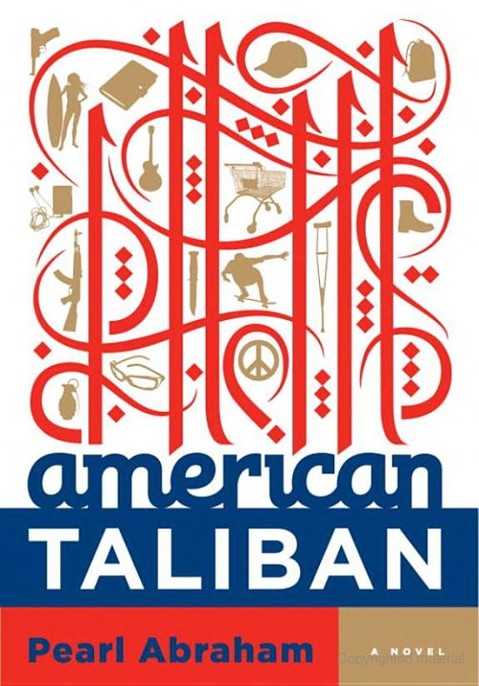
American Taliban
A Novel
کتاب های مرتبط
- اطلاعات
- نقد و بررسی
- دیدگاه کاربران
نقد و بررسی

January 11, 2010
Abraham (The Seventh Beggar
) sends a young man of privilege from Washington. D.C.. on a spiritual quest that takes him from surfing the Outer Banks to encountering jihad in Pakistan. It’s 2000, and John Jude Parish is an 18-year-old surfer with a nose for exploring spirituality. He reads about Bob Dylan, digests the Tao, and corresponds online with Arabic friends about Islam. When he breaks a leg, he uses his time of enforced immobility to study Sufi poetry, which leads him, eventually, to Brooklyn, where he befriends a young man from Pakistan who suggests going abroad to learn more about Muslim culture. Once in Pakistan, each small step takes him closer to becoming radicalized. His journey toward Islam is not one of disenchantment, but of enlightenment, described in an evocative prose that mimics the confusion and grandeur of a young man driven by ideals. The novel is at its best when John’s questing is an earnest, balanced search for meaning, though when Abraham shifts her focus to John’s mother late in the book, the story flattens. Mostly, the book is excellent—considered, magnetic, surprising—but the fizzled ending is a major disappointment.

February 15, 2010
A 19-year-old would-be mystic skims the surface of jihad, in Abraham's fourth (The Seventh Beggar, 2005, etc.).
In August 2000, John Jude Parish decides to defer his entrance into Brown University for a year. His parents, Barbara and Bill, former 60s radicals turned Washington, D.C. bourgeois-bohemians, are willing to bankroll his lifestyle of surfing, skateboarding and enlightenment-seeking. While coaching his entourage of"wahines," female surfers, for East Coast competitions, John has been reading Sufi poetry and delving into Muslim websites. When John sustains several fractures while skateboarding, enforced idleness sends him deeper into his Islamic studies and he resolves to study classical Arabic at a Brooklyn Sharia school. While there, John meets two of his online correspondents, Noor, a beautiful dark-haired waitress, and Khaled, who mediates between John and the Sharia students, who view the newcomer as a religious dilettante. John chastely courts Noor and wears a shalwar kameez he ordered online. The following spring, John accompanies Khaled to Islamia College in Peshawar, Pakistan, where he improves his Arabic and picks up a little Pashto. His anguish upon learning of a wahine's fatal ride, combined with Peshawar's stifling July heat, and his conflicted lust for classmate Yusef, drives John to enter what he imagines is a retreat in the cooler mountain air of Kashmir. The retreat is really a training camp for militants, where John acclimates to a Spartan regime of exercise and target practice. Recruited by a small force of extremists that infiltrates Afghanistan to aid the Taliban fighters, John wanly accepts the role of martyr-to-be. After 9/11, the focus shifts to Barbara and Bill, just as"Operation Enduring Freedom" begins. John has been incommunicado for months. When"American Taliban" John Walker Lindh is arrested in Afghanistan, Barbara comes unglued—the parallels between Lindh's and John's spiritual trajectories are too unsettling.
Cutting away from John at the critical moment robs the reader of the opportunity to see his ideals and mettle truly tested, leaving only the ideological travelogue of a disengaged slacker.
(COPYRIGHT (2010) KIRKUS REVIEWS/NIELSEN BUSINESS MEDIA, INC. ALL RIGHTS RESERVED.)

Starred review from February 15, 2010
What would lead a young American man with a privileged upbringing to convert to Islam and join the mujahideen movement in Afghanistan? Drawing obvious parallels to the true story of John Walker Lindh (whose case is directly referenced in the novel's concluding section), Abraham ("The Romance Reader") creates a plausible series of events leading John Jude Parish from a carefree summer of surfing and skateboarding to taking up arms against the West. With supportive and open-minded but indulgent parents, John has an interest in world religion and philosophy, typical coming-of-age questions, confusion about love and sexuality, and a desire to be a part of an indefinable "truth," all of which draw him incrementally deeper into radical Islam. The reader's awareness of the inevitable outcome doesn't make it any less heartbreaking. VERDICT The author has taken a complex and volatile subject and brought it to a human scale, without compromising or trivializing the global importance of the issues raised. An incredible achievement; highly recommended. [See Prepub Alert, "LJ" 12/09.]Christine DeZelar-Tiedman, Univ. of Minnesota Libs., Minneapolis
Copyright 2010 Library Journal, LLC Used with permission.

March 15, 2010
Abrahams latest novel, an unlikely bildungsroman, charts the progression of John Jude Parish, an 18-year-old affluent skateboarder. His trajectory begins with a summer surfing the Outer Banks, then progresses to a year studying Arabic in Brooklyn instead of enrolling at Brown. A classmate convinces him to spend a year abroad in Pakistan, and it is from this moment that the novel inevitably fulfills its title. In Pakistan, John undergoes his radical militarization: shifting ideals, physical training, and weapons education. Abraham proposes this transformation fairly: peppering Johns training with accounts of the clarity and peace he felt in the Pakistani highlands. Rooted in the John Walker Lindh storyand subsequent hysteriathis novel nicely conveys the helpless confusion those parents must feel amid calls of treason and vengeance. Compounding Johns confusion in Pakistan, Abraham throws him into experimentation with his burgeoning bisexuality. While Johns personal and political transformation is interesting, the premise becomes too farfetched to maintain much plausibility. Ultimately the sympathy resides with his confused and scared mother.(Reprinted with permission of Booklist, copyright 2010, American Library Association.)

























دیدگاه کاربران